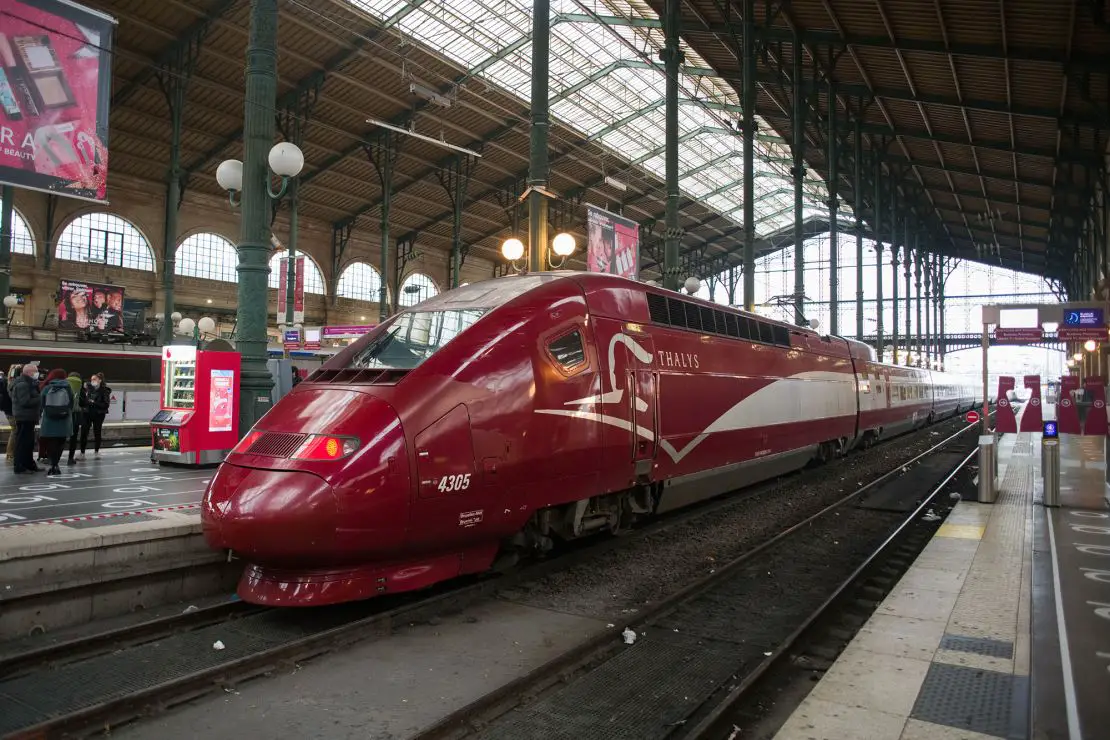Infrabel, the railway network manager in Belgium has announced a €310 million investment for the renovation of the high-speed rail from Brussels to Paris. This HSL1 network is one of the oldest high-speed lines in the country and will take nearly a decade to complete. It has shown signs of ageing in recent years hence the call for renovation. Furthermore, they want to enhance the performance of the line and make it more competitive in Europe. The renovation plan by Infrabel was proposed and approved by the federal government in December 2022.
Also Read: President Vladimir Putin announced the commencement of Moscow-St. Petersburg high-speed rail
Construction details
Construction will take place at night to minimize disruption. Moreover, every summer, the line will be completely interrupted for two weeks. During this period, the high-speed trains to and from Paris and London will run with delays. This is because they will have to use conventional tracks. During the first phase of works, train traffic on the line will be interrupted in both directions from 12 to 30 August of this year. The start date was chosen deliberately: it falls the day after the closing ceremony of the Paris Olympics. During the works, which will take place around the clock, high-speed trains to and from Paris and London will be diverted via the conventional track. As a result, travel times will be around half an hour longer than normal. The railway operators operating on HSL1 will inform passengers of the changes to their timetables.
Also Read: Eiffage Rail and Captrain secures €415 million for renovations of France rail work.
History on the line
The 74 kilometer Belgium high-speed rail operated by Infrabel was commissioned in December 1997. The line has greatly shortened journey times with a trip from Paris to Brussels taking 1 hour 22 minutes. In combination with the LGV Nord, it has also impacted international journeys to other cities in France and to London. It also ensures high-speed through-running by Eurostar, TGV, Thalys PBA and Thalys PBKA trainsets. The total construction cost for the line at the time was €1.42 billion.
“Thanks to the high-speed lines connecting Brussels to Paris, London, Amsterdam, Frankfurt and Cologne, Belgium has firmly positioned itself at the heart of Europe. The high-speed train is an important asset for our economy. Tourists and business people from all corners of the continent can reach our cities with a comfortable train ride,” said Alexander de Croo, prime minister of Belgium.
“Without this work, we would have to limit the commercial speed of the trains from next year,” said Infrabel chief Benoît Gilson.
The Eurocity trains for Paris Olympics
In other news, it was recently announced that SNCB, the Belgian national railway operator will be introducing a new, more affordable train service named Eurocity ahead of the Paris Olympics. The two trains will run daily between Brussels-Midi and Paris-Nord from 24 July to 11 August. The return services will arrive in Brussels in the early afternoon or early evening. For the Paralympics, one train (early morning) will run between the two capitals from 28 August to 8 September.

